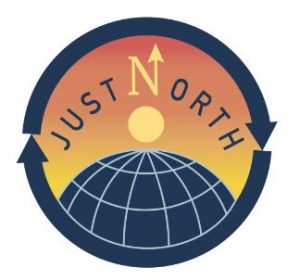Justice has long been central to geographic research but attention to the concept itself has been less explicitly theorized within the discipline. This article specifically traces the ways in which justice has been theorized within human geography.
Przybylinski
Justice has long been central to geographic research but attention to the concept itself has been less explicitly theorized within the discipline. This article specifically traces the ways in which justice has been theorized within human geography. The review identifies commonalities among justice applications within geography, suggesting a shift beyond distributive and ideal theories of justice toward those explicating injustices coming more from bottom-up approaches. At the same time, it identifies the tendency of geographers to approach the concept of justice through normative-political approaches rather than normative-analytical justifications of socio-spatial phenomena. The paper illustrates the value of both approaches to justice theorizing but cautions that geographers should continue to justify the use of the concept within their work to avoid attenuating it. In ending, the paper illustrates how justice-oriented geographers can continue to identify why justice is central to their scholarship.
Read the full article:
https://compass.onlinelibrary.wiley.com/doi/10.1111/gec3.12615
JUSTNORTH
JUSTNORTH is a project designed to explore the multitude of ethical systems that coexist in the Arctic, as a starting point to assess the viability of new economic activities in the region. For the millions of people who live both inside and outside the Arctic and are affected by these economic activities, decisions are made through utilitarian ethical principles: viability of an activity is based on profitability and technical feasibility, with little regard to questions of whether it is ethically right or wrong for the impacted human populations or the environment. Global climate change has launched intense speculation on Arctic resources. Increasing geopolitical tensions among some of the Arctic states increases the importance of respecting different value systems while finding common values to help strengthen the links between Arctic and non-Arctic entities. Significant practice and policy gaps in existing Arctic economic activities have led to development that is unsustainable.
Through understanding current practices of development in the Arctic through the lens of 18 case studies, JUSTNORTH aims to develop conceptual frameworks, indices and a negotiation tool, for reconciling multiple ethics and value systems. These will provide a cornerstone for determining the viability of economic activities in the Arctic, as well as clarify policy, legal, and regulatory pathways for implementing ethic-based decision-making principles.
Global climate change has launched intense speculation on Arctic resources. Increasing geopolitical tensions among some of the Arctic states increases the importance of respecting different value systems while finding common values to help strengthen the links between Arctic and non-Arctic entities. Significant practice and policy gaps in existing Arctic economic activities have led to development that is unsustainable.
Through understanding current practices of development in the Arctic through the lens of 18 case studies, JUSTNORTH aims to develop conceptual frameworks, indices and a negotiation tool, for reconciling multiple ethics and value systems. These will provide a cornerstone for determining the viability of economic activities in the Arctic, as well as clarify policy, legal, and regulatory pathways for implementing ethic-based decision-making principles.
Project details
- Project title: “Toward Just, Ethical and Sustainable Arctic Economies, Environments and Societies”
- Funding scheme: European Union Horizon 2020 Programme (EU H2020, Grant agreement ID: 869327)
- Duration: 3 years (1 June 2020 – 30 November 2023)
- Project coordinator: Uppsala Universitet, Dr. Corine Wood-Donnelly
- Project website: www.justnorth.eu/
